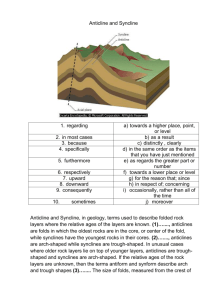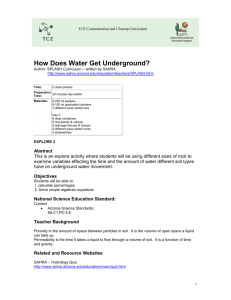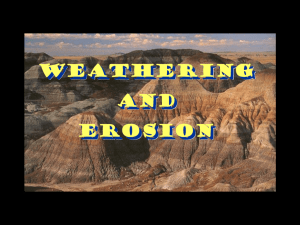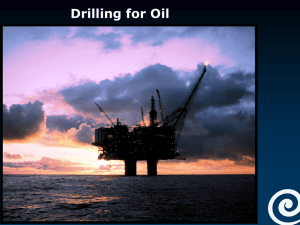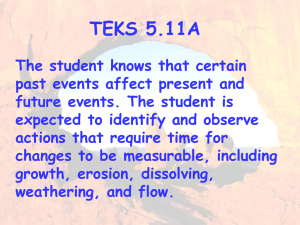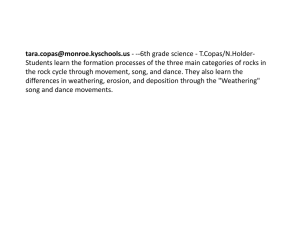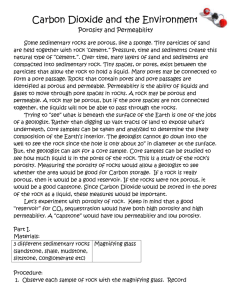Where can we find oil and natural gas?
advertisement
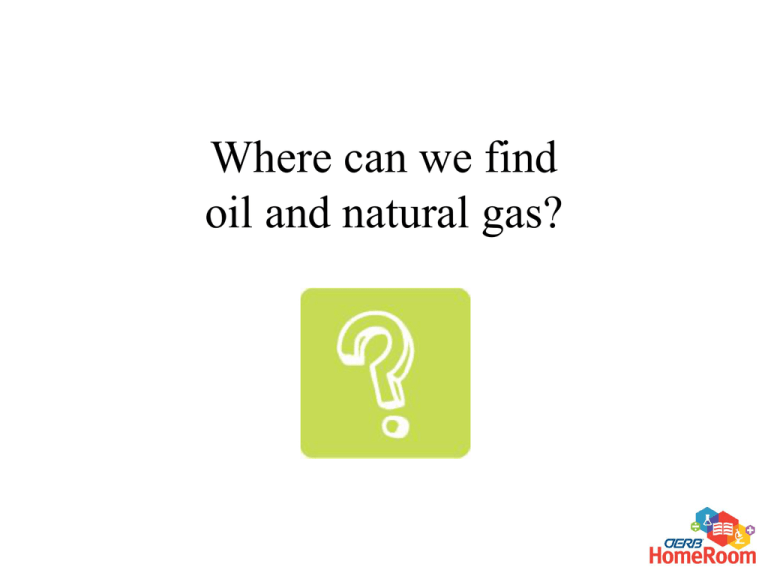
Where can we find oil and natural gas? Oil and natural gas are found in the small spaces between the grains in a sedimentary rock. Mathematically, porosity is the pore space in a rock divided by the total rock volume. In good reservoirs the porosity is 10-30%. Porosity and Permeability = Open space in rock Flow Direction Microscopic Thin- Section of a sandstone Porosity 30% Porosity No Permeability Flow Direction Flow Direction 30% Porosity Good Permeability Permeability Sand Grains How do we find Oil and Natural Gas? Geologists and Engineers use reflection seismology to see if a rock has oil in it Seismology trucks (thumper trucks) send sound waves through the earth and computers record how long it takes the waves to reflect back to receivers The tires on a thumper truck are approximately 5 feet tall! Seismic Lines What are we looking for during seismic testing? Geologic Structures Syncline Anticline Anticlines are folds in which the oldest rock lies in the center or core and synclines have the youngest rock in its center or core. Geologic Structures Anticlines and Synclines form when rock layers are compressed, (pushed together) similar to carpet folds when its sides are pushed together. When rocks are compressed they can either bend, creating folds, or they can fracture, creating faults. Anticlines are sought out by geologists who explore for oil and gas because the arches form natural traps these hydrocarbons. Structural Trap - Anticline Upwarping of rocks (anticlinal folds) are particularly good at trapping crude oil and natural gas. Structural Trap - Anticline OIL Oil formed in the source rock migrates upward through the reservoir rock until it is stopped by the cap rock. How do we get it out of the ground once we’ve found it? Drilling Rig Drilling for Oil Sometimes the oil reservoir is under a city, lake or other sensitive area. Drilling for Oil To reach oil reserves underneath the Oklahoma State Capitol Building, one oil well was directionally drilled from across the street. Directional Drilling To drill a directional well, the first part of the hole is drilled vertically. The hole kicks off, or deflects, so that the bottom of the well is hundreds of meters away from its starting point on the surface. After drilling, sometimes a pumping unit is installed Oil and Gas Production A Christmas Tree is used to control the flow of oil and natural either to a storage tank or pipeline. After the oil is pumped it is taken to an oil refinery Refining Process Oklahoma has five oil refineries. The refinery is where oil is heated until it separates into many different parts. These parts are then used to make products like gasoline, jet fuel heating fuel, tar and plastic Uses of Crude Oil and Natural Gas Natural Gas Crude Oil
